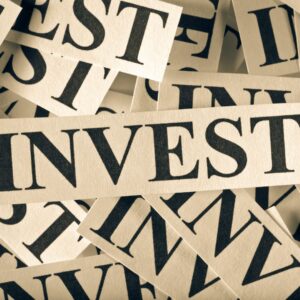With the market volatility over the past couple months, worries of a recession have surfaced. Per this article in Reuters, JP Morgan research puts the probability of a recession at 60%. S&P Global has the probability between 30-35% and Goldman Sachs 35%.
Whenever there’s talk of a recession the natural next questions are how severe and how long? Of course nobody knows, but there are no shortages of predictions and recession worries.
4 Fundamentals to Follow
I don’t think I can predict the future and I kind of laugh at people who think they can. There are however things you can do to protect yourself in a recession. There’s no perfect plan but following these four fundamentals will give you a really good chance.
Number 1: No Consumer Debt
Consumer debt is one of the worst things for anyone’s personal finances. Number one, you are literally giving money to the lender in interest payments. For someone in a lot of consumer debt that number can easily be in the hundreds, or even thousands per month.
Number two, consumer debt can take years and years to pay off, especially if you are just paying the minimum. This keeps you in an endless cycle where your money is going to the lender instead of helping you build wealth.
Number three, consumer debt is a guaranteed payment you have to make each month to the lender. It’s a payment you’re attached to and have to make, otherwise you face consequences like going to collections, a hit on your credit, etc.
If things are tight for you in a recession, the last thing you need is to be making payments for something you bought months or years ago. Consumer debt is a guaranteed negative to start each month and a payment you’re obligated to make.
Number 2: Have an Emergency Fund
If things get unpredictable for you in a recession, it’s very nice to have a financial backup and protection. An emergency fund is just that.
If you come into a situation where you need money, you can pull from your emergency fund. This will help financially protect you from job loss, a large home or car repair, a health issue, etc.
For example, imagine a scenario with these two people at the same company facing layoffs. One person has a nine month emergency fund while the other has less than a month. Who do you think is going to be more stressed?
Number 3: Hold Off On Big Purchases
If things are unsteady, and you’re looking at making a big purchase, think about holding off. Especially if you don’t have a fully funded emergency fund.
For example, if you are fearing job loss or your business isn’t going well, now wouldn’t be the best time to make a big purchase. Focus instead on stabilizing your income stream and building up cash reserves. Then once that’s done, reconsider the purchase.
There are of course some things that can’t be postponed like replacing a broken hot water heater or transmission. Other things like upgrading a used car that still works fine can be held off for some time.
Number 4: Keep Investing
If you have a fully funded emergency fund, keep investing. Recessions are a great time to “buy low”, aka when assets are on sale.
It can be scary to see the market drop. It feels like losing your hard earned money and our brains immediately go to the worst thoughts like:
- “I’ve lost the money.”
- “It’ll never be that high again.”
- “Our nest egg is way down.”
History tells us though that the market always goes up (past performance is not indicative of future results). That doesn’t mean it’ll go up today or tomorrow, it means over long periods of time. So when the market drops, think of it as a sale and buying opportunity. The more assets you buy on sale, the better off you’ll be in the long run.
Conclusion
I believe that if you follow these four fundamentals, you will have a chance to thrive during a recession. Recessions are the scariest for those who are not prepared.
Those who are prepared aren’t guaranteed success but I like their chances a lot more. Think of a big sporting event like the Super Bowl or a heavyweight fight.
The prepared athlete has a better chance to win than the unprepared athlete but the outcome isn’t 100% guaranteed. Same thing with money. The prepared person has a very good chance of success, but it’s impossible to predict with 100 percent certainty.
How do you prepare for a recession?







